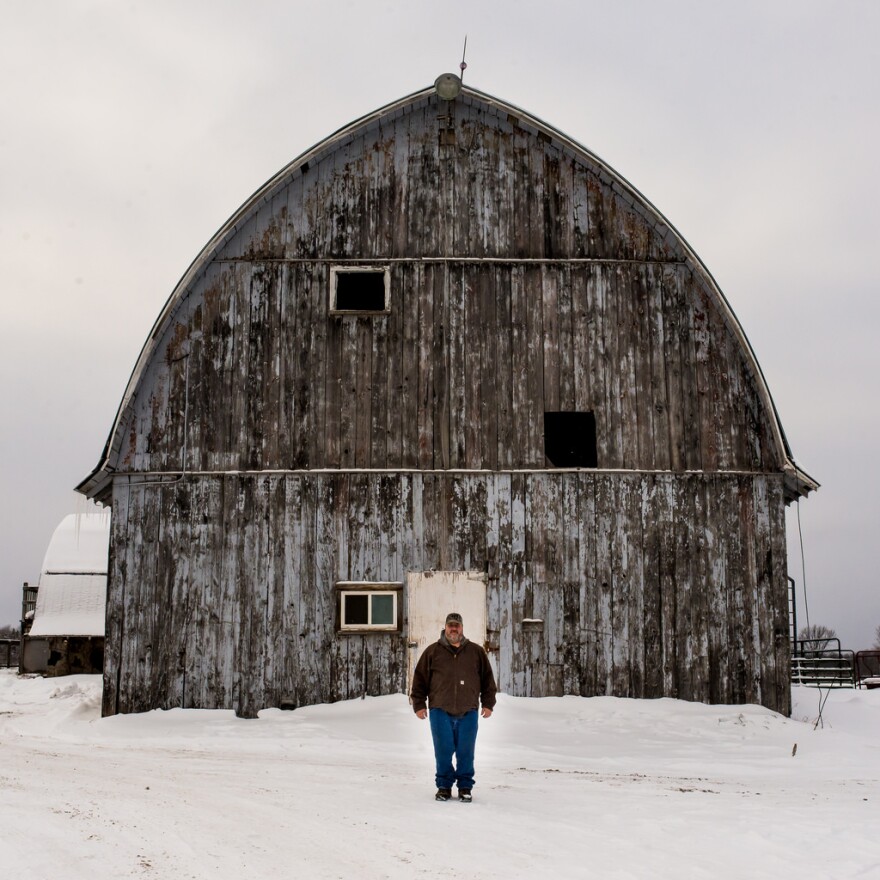This Saturday evening, a documentary will air on cable TV about the debate that has consumed Wisconsin for a couple years.
Should the state allow iron ore mining in the pristine Penokee Hills? For some, what makes the film noteworthy might be its sponsor.

The film’s producers, UW-Milwaukee grad Colin Sytsma and Devon Cupery, a graduate of Brown University, both say they were drawn to Wisconsin’s mining story.
The Milwaukee-based production company, 371 Productions, is behind the film, Wisconsin's Mining Standoff. But while creative juices flowed, they could not find an immediate home for their project, until they hooked up with Al Jazeera America.
The Arabic news network Al Jazeera started in 1996 in the Middle East, with funding from the ruling family of Qatar.
Last year, Al Jazeera America – with an independent management team - launched out of New York. Its journalists produce a series called Fault Lines, which explores issues igniting passions in the U.S. and has won multiple awards – including, two Peabodys.
But Sytsma says the partnership did present challenges.

The team made nearly 20 trips to northern Wisconsin to gather interviews and footage, and many people – on both sides of the mining issue – feared the name Al JaZeera.
“But when I asked them what have you seen from Al Jazeera, they would usually say, well, I haven’t seen anything," Sytsma says. "And so there’s a perception that Al Jazeera is bad." Devon Cupery adds that its been a challenge “because of some of the stigma against Middle Eastern culture."
The team filmed much of the documentary when snow and ice covered Ashland and Iron Counties and Lake Superior. The opening scene reveals its magnificent ice caves on the Apostle Islands.
https://www.youtube.com/watch?v=2lpmH8_d8lQ
Cupery says the film seeks to capture the significance of the resource, and explore the state of Wisconsin’s democracy, through how its new mining law came to life.
“We found that one of the most important things for understanding the story of how this law unfolded was talking with state Senator Jauch who represents the area where the mine would be," Cupery says. "And he told us how a lawyer from the mining company approached him with a copy of the bill 186 pages before it was formally introduced."
On the other side, the chair of the Iron County Mining Impact Committee shares her conviction, that the bill was necessary to fuel jobs in a struggling region.

Sytsma says the team sought out people with different perspectives, but not everyone cooperated.
“We spoke with a variety of people from both counties," Sytsma says. "We went to a couple of county board meetings in Iron County where different people were testifying about their support or opposition. You know I called a lot of people in Ashland County to find pro mine. They were far and few between; and the ones that were, never answered my phone calls and never called me back."
The team also collected information about the company aiming to create the Penokee mine. Cupery thinks it should be more closely scrutinized.
“If you look at the record of the company, Cline Corporation who owns G-Tac, they’ve had over 8,000 safety violations in the last 10 years in their mines in Illinois and West Virginia," Cupery says. "They’ve had over 1,000 environmental violations at those mines and there’s a pattern of violating federal law."
The documentary team accumulated a dizzying amount of material over nine months, according to Sytsma. He says they worked with editors to distil it down to a 25-minute film.
“They really helped us in slowing down the pace of this film and lay out the facts and what might happen, allowing the viewers to decide for themselves,” Sytsma.
The company, G-Tac or Gogebic Taconite, is currently collecting data on everything from wetlands to wildlife in the far north, to include in its application for a mining permit.
WUWM reached out to Gogebic Taconite for a comment about the film. "I haven't seen the report, but based on the inaccuracy of their press release and the nature of their interview, it is pretty clear this show is not about news reporting," a spokesperson for the company says.
"Wisconsin's Mining Standoff" airs Saturday, June 14 at 6 pm CT on Al Jazeera America, available in Wisconsin on Time Warner Channel 376, DIRECTV 347 and DISH Network Channel 215. For those without cable, the filmmakers are hosting a screening Saturday night, 5-7 pm at CAMP Bar in Shorewood.







